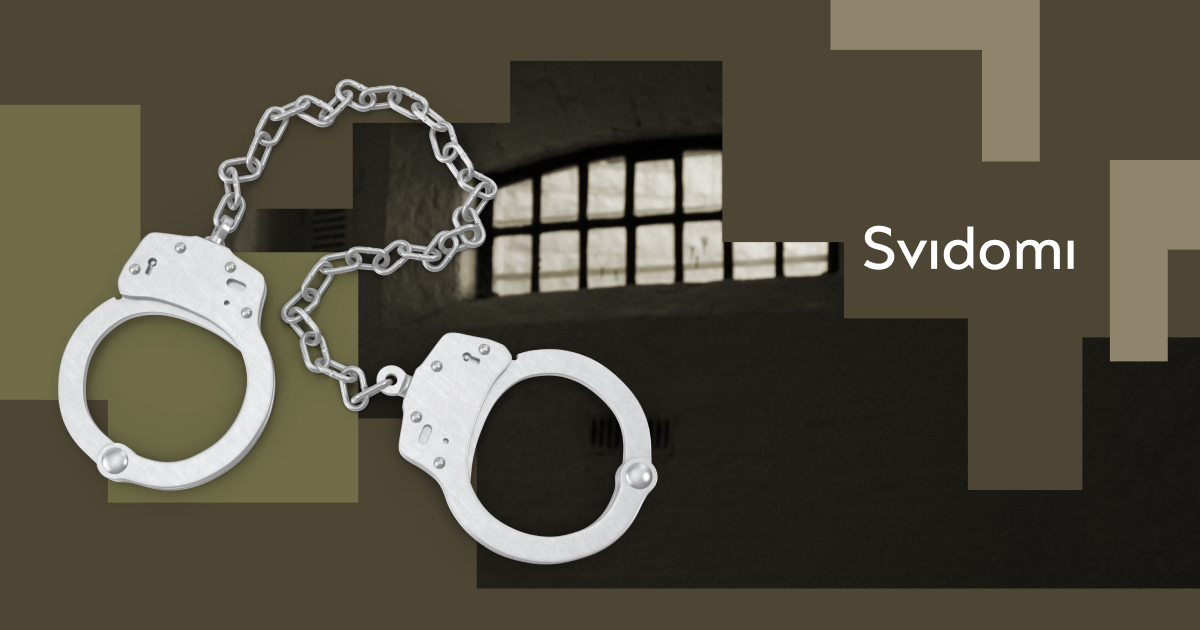Experiencing Imprisonment. How civilians can understand the military

Psychologist Tetiana Smirnova says that the experience of imprisonment is considered one of the most difficult human experiences.
It is known from open sources that the Russians use various types of torture and abuse: physical (beatings, electric shocks, stabbings, holding in one position for hours), psychological (negative psychological suggestion, demand to renounce one's identity as a Ukrainian, a military man, a husband, verbal humiliation, public undressing, shaving) and mental (disinformation, hunger for information, lies).
Psychologists note that the experience of captivity leads to the loss and trauma of one's own self.
In this article, together with psychologist Kateryna Mitchenko and Tetiana Smirnova we talk about the consequences that can occur after imprisonment and how to support loved ones with such experiences.
After captivity
- Loss or injury to identity
- Violation of personal boundaries
- Fear of making mistakes
- The inherent loss of autonomy manifesting in an unwillingness to take responsibility and express oneself.
These are the consequences that can manifest themselves in people who have lived through the experience of captivity, says Kateryna Mitchenko, a psychologist at the Razom social project, a member of the National Psychological Association of Ukraine, a lecturer at the Dnipro State University of Internal Affairs and a police captain.
How to maintain effective communication?
- During the interaction, focus on the person's personality, physical, psychological, social desires and their satisfaction.
- Do not demonstrate excessive self-confidence and dominance, as you may be identified as a torturer.
- Due to the violation of the personal boundaries of a survivor, it is necessary to adhere to the established time limits, rules and preliminary agreements as much as possible.
- Do not show emotion, but understand the person's inability to make a simple decision.
- Mistakes should be accepted calmly and helped to find the identity that was lost.
Tetiana Smirnova, a military psychologist with the Women's Power of Ukraine NGO, which provides social and psychological support to military families, says that the advice on communicating with the military is universal: join in, support, not interfere where you are not allowed to, and be careful what you say.
"'I understand' or 'I feel the same way as you' may sound insincere to a military person. "Just don't think", "Why are you so worried?", "Move on" — all these phrases can turn you away.
But "I'm here for you", "You can trust me", "I can see that you are having a hard time", "I would like to help you", "I value you" sound more environmentally friendly and keep you connected," advises Tetiana Smirnova.
Vasyl Protsyshen, call sign Obito, is a serviceman with the Azov Brigade. After February 24, 2022, he defended Mariupol. On May 16 last year, at the top military and political leadership's request to save the soldiers' lives, the garrison left the plant. Protsyshen was taken prisoner and released on June 29. Now Obito is back at the front.
The military told Svidomi how his mindset changes after captivity and how he builds communication with his family.
— How do you feel when someone asks you about your experience in captivity?
— Nothing, it's a normal life experience. I feel fine. Some guys are not okay. You need to understand who you are talking to. If it's a close person, they will generally recall this experience, but they won't want to tell you some things to not "burden" you with their negative experience.
From time to time, I need to have a personal space to reflect a little bit and rethink the events that are happening now or have happened before. Sometimes I can be overwhelmed by memories. I will be silent, I can watch something or listen to music, I can just sit in silence - and this is fine; there is no need to worry at these moments.
You don't need to pry with questions and phrases like "What are you thinking about?" or "You must be worried". If the person wants to share with you, they will tell you. But you shouldn't impose and show pity.
— How can you support the military? What words of support do you want to hear?
— If a person has no problem being touched, loved ones can hug them. Say: "I love you", "You deserve love", "You deserve happiness". My family often says, "You are the best," but it makes me feel flushed. I feel uncomfortable when my mother or sister says I'm a hero. I know people who have done such incredible things and shown such courage that I feel like an observer in comparison.


